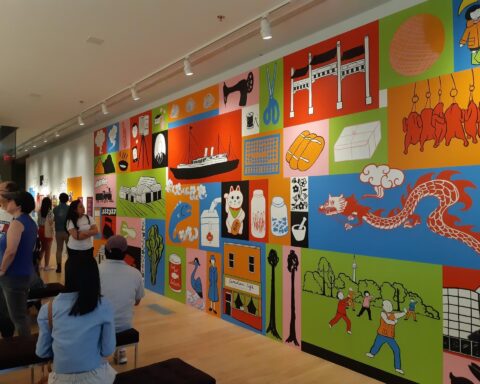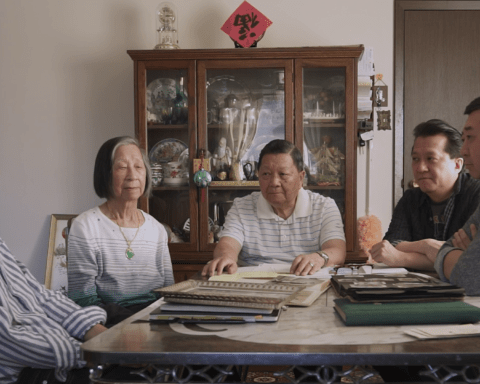Regrets, but I won’t be attending bicentenary birthday celebrations for Sir John A. Macdonald — my country’s most famous immigrant son, its first prime minister, and the Father of Confederation.
I do not want to diminish Macdonald’s life accomplishment of bringing together Upper and Lower Canada and Britain’s Atlantic colonies in Confederation, nor do I wish to denigrate his important contribution to our national story.
But I cannot accept the historical revisionism celebrants and other party-goers embrace in elevating a deeply flawed man as a hero in today’s vision for Canada.
Just last week, Toronto City Councillor Denzil Minnan-Wong betrayed my community’s history in Canada by suggesting that iconic Union Station – integral to many immigrant landing stories – be renamed to honour our first prime minister.The councillor is myopic in his consideration for a name change. Indeed, a straw poll in the Toronto Star found 90 per cent of respondents wanted to keep Union Station in the daily conversations of Torontonians and visitors to our city. It’s both a reference to familiarity and to a rich history that is supportive of the city’s motto: Diversity our strength.
During the nation-building era of our country, Macdonald set the tone for political, economic and cultural growth of the Dominion of Canada. His policies were exclusionary and, to a degree, self-serving. He rose to power early on as our first prime minister, then fell from power amid the disgrace of the Pacific Scandal in 1873. Macdonald was found to have accepted bribes in the bidding for lucrative railway contracts. Private investors sought government favour to build Canada’s “national dream” — a promised transcontinental railway that would link the newly joined British Columbia to the rest of Confederation.
The Pacific Scandal forced Macdonald to leave his beloved Kingston, Ont. — where on January 11, hundreds gathered to celebrate with music, a statue ceremony, and the unveiling of a levee to mark the one-year countdown to Macdonald’s bicentennial birthday bash — to take a seat for a term faraway from the political centre in Vancouver. The scandal and its aftermath delayed the government’s promise to British Columbia.
Building the Railway
A decade later, the federal government decided to contract Chinese labourers to complete the Canadian Pacific Railway.
From 1881 to 1885, my ancestors migrated here on contracts to build the western portion of the railway, through the treacherous Rocky Mountains. Roughly, 18,000 Chinese men, many of whom migrated to Canada for the railway, and others who were already here, accomplished this monumental feat, not only through blood, sweat and tears, but also with their lives.
No sooner had this feat been accomplished than politicians, led by Macdonald, attempted to exclude the Chinese from Canada. In a speech to the House of Commons on May 4, 1885, Macdonald said: “When the Chinaman comes here he intends to return to his own country; he does not bring his family with him; he is a stranger, a sojourner in a strange land, for his own purposes for a while; he has no common interest with us . . . A Chinaman gives us his labour and gets his money, but that money does not fructify in Canada; he does not invest it here, but takes it with him and returns to China . . . he has no British instincts or British feelings or aspirations, and therefore ought not to have a vote.”
The Chinese consul-general, Huang Tsun Hsien, attempted to rebut Macdonald’s comments, saying, “You must recollect that the Chinese immigrant coming to this country is denied all the rights and privileges extended to others in the way of citizenship; the laws compel them to remain aliens. I know a great many Chinese will be glad to remain here permanently with their families, if they are allowed to be naturalized and can enjoy privileges and rights.”
But his words didn’t help and essentially 62 years of legislated racism against the Chinese in Canada ensued, through an inequitably levied head tax on Chinese immigrants (1885 to 1923) and the Chinese Exclusion Act (1923 to 1947).
Excluding the Chinese
Macdonald’s comments in Parliament were not his only contribution to the exclusion of the Chinese people — he was also responsible for an amendment in the Electoral Franchise Act (1885) that cut off my community at the knees — changing the interpretation of the voting act to include anyone, so long as they were not “a person of Chinese or Mongoloid race.”
In Canada, at least until after the Second World War, inclusion on the voters’ list was essential to societal membership, including access to professions. Because of racism, immigration restrictions, and political animus, the Chinese community became an impoverished “bachelor society,” through family separation and other legislated economic limitations. Incidentally, subsequent exclusionary amendments to our franchise law also denied rights to First Nations, South Asians and Japanese.
Mere sojourners
Macdonald’s description of Chinese in Canada as “sojourners” historically was the epitaph on any attempt by earlier generations of Chinese Canadians to establish stronger ties to what, thankfully, has since become our home on Natives’ land. Chinese Canadian ties to First Nations denotes a much stronger relationship than in the narratives of European settlement, although this remains largely unexplored territory in Canada’s official history.
Unfortunately, many politicians at the time enacted unfair and racist policies against the Chinese in Canada, but Macdonald was certainly one of the most vociferous and influential personalities whose words and deeds impeded the rights and livelihoods of many Canadians.
It has taken Chinese Canadians nearly 125 years to repair the damage done, with an official Parliamentary apology for the Head Tax and Exclusion Act delivered by Prime Minister Harper in 2006, and redress, arguably, still incomplete.
As Canadians, we need to be more critical about our history — and more inclusive, if we are to claim multiculturalism as an integral part of our Canadian identity and our common vision for the future. The strength of our common history is not in a single individual’s deeds — even our first prime minister’s — but in our public debate and collective action in shaping the future we want.
While others gather in jubilant celebration of Sir John A. Macdonald, I’ll choose to reflect on the lessons of our collective history, of a country that has become so much more than what one of its founders envisioned.
Brad Lee is a former Toronto Star editor and co-producer of the documentary film, “Operation Oblivion,” the story of Chinese Canadian war veterans who helped restore civil rights in Canada after the war. The documentary airs on OMNI TV on March 2, 2014.




